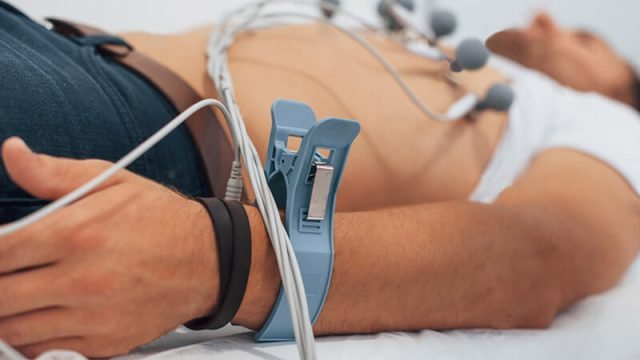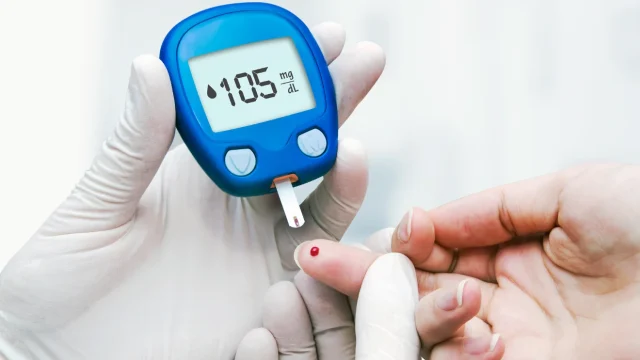Neurological tests are a series of complex procedures that help doctors diagnose conditions like Alzheimer’s, Parkinson’s, or multiple sclerosis. Moreover, doctors may sometimes suggest a list of neurological tests to understand complex neurologic conditions which include brain injury, tumors, hydrocephalus, aneurysm, epilepsy, or stroke.
Neurological exams allow doctors to determine the course of treatment for complex brain disorders. Therefore, these advanced imaging techniques provide invaluable insights into the health of our neural networks.
Read along to learn about different neurological tests that can empower you to make informed decisions about your healthcare
What are Neurological Tests?
In broad terms, neurological tests are a series of evaluations that help assess the health and function of the nervous system. These include the brain, spinal cord, and nerves. Moreover, neurological tests allow neurologists to diagnose and monitor conditions affecting the nervous system, including stroke, multiple sclerosis, Alzheimer’s disease, and Parkinson’s disease.
Primary Types of Neurological Tests:
- This physical exam specifically tests muscle strength, coordination, reflexes, and sensation and is known as Neurological Exam.
- Complex tests that utilize advanced imaging techniques to create images of the brain are brain imaging tests. The tests include MRI, CT scans, and PET scans.
- Electrophysiological tests measure the electrical activity of the brain and nerves. The complex examinations include electroencephalogram (EEG), electromyogram (EMG), and nerve conduction studies.
- Specific blood tests are also used to help diagnose conditions that affect the nervous system, including autoimmune infections or autoimmune disorders.
Why are Neurological Tests Necessary?
Neurological tests are primarily used to diagnose and monitor conditions that affect the nervous system.
Common reasons to consider neurological tests:
- Frequent or severe headaches with nausea, vomiting, or visual disturbances.
- Persistent dizziness or vertigo may indicate neurological issues including ear problems or brain disorders.
- Seizures, with sudden, involuntary changes in brain activity.
- Sudden or progressive changes in vision or hearing problems indicate optic neuritis or acoustic neuroma.
- Numbness or tingling in the extremities may be due to nerve damage or compression.
- Muscle weakness or tremors can indicate multiple sclerosis or Parkinson’s disease.
- Difficulty with coordination or balance may indicate cerebellar disorders or stroke.
- Memory problems or confusion can be early signs of Alzheimer’s disease or dementia.
- Sudden or significant changes in behavior may be signs of underlying brain disorders.
- Head injury or spinal cord injury needs neurological tests.
If you have any of these concerns. Consult a neurologist at Apollo Clinic Ulubari for a proper evaluation and diagnosis.
What is a neurological assessment?
A complete evaluation of a person’s nervous system, including the brain, spinal cord, and the connecting nerves to other parts of the body is a neurological assessment. Also, this assessment is done to check for possible abnormalities in the nervous system.
When a neurologist conducts this examination, it includes the evaluation of speech, awareness, motor function and balance, sensation, reflexes, coordination, and the 12 cranial nerves of the brain.
While examining these nerves, the doctor checks the awareness of smell, vision, pupil activity, eye movement, taste, hearing, swallowing, and movement of the face, neck, and shoulders.
Therefore, this assessment is conducted on patients who have faced trauma or head injury. Doctors may also recommend the examination if a person has symptoms that may include dizziness, blurry vision, confusion, or difficulty with motor functions.
Brain Tests Name List
During a neurological assessment, your neurologist will use a range of tests to assess different aspects of your brain functions:
Brain Imaging Tests:
- Brain tests like MRI (Magnetic Resonance Imaging) take a detailed look at brain structure and function
- A CT Scan (Computed Tomography Scan) helps to take a quick assessment of brain injuries and abnormalities.
- To evaluate brain activity a PET Scan (Positron Emission Tomography Scan) is a functional imaging test
- EEG (Electroencephalogram) helps measure electrical activity in the brain
Brain tests also include nerve tests:
- To evaluate muscle health and nerve function, the doctor suggests an EM(Electromyography) test
- Nerve Conduction Studies measure the speed and strength of nerve signals
Spinal Tap (Lumbar Puncture) collect cerebrospinal fluid for analysis
Blood Tests are also helpful in identifying medical conditions that may affect the nervous system
What is a neurological exam?
Neuro exam or neurological exam is a physical examination that helps to identify and track signs of brain, spinal cord, and nerve disorders and treatment response. Additionally, neuro exams are the most efficient way to check the function of the brain and nervous system and which tests to run. Also, a neurological exam depends on the symptoms of the patient.
What does a neuro exam entail?
A neuro exam helps the doctor assess nervous system functioning through various evaluations that include:
- Mental status (cognition) and speech.
- Nerves of your head and face function.
- Strength, coordination, and muscle tone.
- Reflexes.
- Perception to different stimulation, like touch and vibration.
- Gait and mobility.
- Spine.
- Level of consciousness after trauma.
Conclusion
This blog must have given you a fair idea of how neurological tests can be complex to comprehend. You must have understood that these tests help in managing your neurological health.
If you have any queries regarding various neurological tests, you can contact the neurological department of Apollo Clinic Ulubari.
Additionally, our competent neurologists are here to help manage your neurological problems. Consider consulting with the best neurologists in Guwahati at Apollo Clinic Ulubari for comprehensive assessments and accurate diagnoses.
You can browse our website for insights or book an appointment to learn more about our neurological services.
Call 9085612000 to schedule an appointment.
Frequently Asked Questions
What assessment is done during a Neurological Exam?
During a neurological exam, your doctor assesses your:
- Your alertness, memory, attention span, and mood.
- The doctor evaluates the cranial nerves which control your sense of smell, sight, hearing, taste, facial movement, and swallowing.
- The neurologist checks the muscle strength, tone, and coordination.
- The exam also helps check the sensory system, sense of touch, pain, temperature, and vibration.
- Also the involuntary muscle contractions.
What is the duration of a Neurological Exam?
The duration of a neurological exam depends on the reason for the exam and the specific tests. However, it may take anywhere from 30 minutes to an hour.
Do Neurological Tests cause pain?
Most neurological tests are painless. However, electromyography (EMG), may involve mild discomfort like a brief pinch.
What to Wear for a Neurological Exam?
It is best to wear comfortable clothing that allows for easy movement.
What are neurological tests?
Neurological tests are a group of medical procedures used to evaluate the health and function of the nervous system including the brain, spinal cord, and nerves throughout the body. These tests diagnose neurological conditions:
- Multiple sclerosis
- Parkinson’s disease
- Alzheimer’s disease
- Stroke
- Brain tumors
- Spinal cord injuries
What types of neurological tests are there?
There are different types of neurological tests, including:
- Neurological exam: This is a physical exam that assesses your reflexes, muscle strength, coordination, and sensory functions.
- Electroencephalogram (EEG): This test measures the electrical activity of your brain.
- Electromyography (EMG): This test measures the electrical activity of your muscles.
- Nerve conduction study (NCS): This test measures the speed and strength of electrical signals in your nerves.
- Magnetic resonance imaging (MRI): This test uses a magnetic field and radio waves to create detailed images of your brain and spinal cord.
- Computed tomography (CT) scan: This test uses X-rays to create cross-sectional images of your brain and spinal cord.
- Positron emission tomography (PET) scan: This test uses a radioactive tracer to measure brain activity.
When might I need a neurological test?
You may need a neurological test if you are experiencing:
- Weakness
- Numbness
- Tingling
- Pain
- Loss of coordination
- Difficulty walking
- Changes in vision
- Changes in speech
- Changes in memory
- Changes in mood
- Seizures
How do I prepare for a neurological test?
The preparation for a neurological test will depend on the specific test you are having. However, you may need to avoid certain medications or foods before the test.
What are the risks of neurological tests?
Most neurological tests are safe and have minimal risks. However, some risks associated with certain tests:
- MRI scans use a strong magnetic field, which can be dangerous for people with certain metal implants.
- CT scans use X-rays, which can increase your risk of cancer.
- PET scans use a radioactive tracer, which can be harmful to your body.
What are the benefits of neurological tests?
Neurological tests can help diagnose neurological conditions, monitor disease progression, and evaluate the treatment.
Where can I get neurological tests done?
Neurological tests are performed in a hospital or clinic by a neurologist.
How much do neurological tests cost?
The cost of neurological tests will vary depending on the specific test, the location, and your insurance coverage.
Can I get the results of my neurological test online?
You may be able to access the results of your neurological test online, but this will depend on your doctor and your healthcare provider’s policies.
What if I have questions about my neurological test results?
If you have any questions about your neurological test results, be sure to talk to your doctor. They can explain the results to you and answer any questions you may have.
What is done during a neurological assessment?
A neurological assessment typically involves evaluating the patient’s mental status, cranial nerves, motor and sensory systems, reflexes, and coordination. This may include a physical exam, medical history review, and various tests to assess brain function.
Why does a neurologist look at your tongue?
A neurologist may look at the patient’s tongue as part of a neurological exam to evaluate cranial nerve function. The tongue is controlled by several cranial nerves, and observing its movement can provide information about potential neurological issues.
How long does a neurological exam take, and is it painful?
The duration of a neurological exam varies depending on the complexity of the patient’s condition. Typically, the exam takes around 30-60 minutes and is not painful. Patients may feel discomfort during some tests, but these are typically brief and well-tolerated.
Can I drive or go back to work after a neurological exam?
Most patients can resume normal activities after a neurological exam, including driving and work. However, if the exam involves sedation or other procedures that may impair driving ability, patients should arrange for a ride home.
Are there any risks or complications associated with a neurological evaluation?
Neurological evaluations are generally safe, non-invasive, and well-tolerated. In rare cases, patients may experience discomfort or adverse reactions to certain tests. However, these risks are minimal and usually outweighed by the benefits of the exam.











